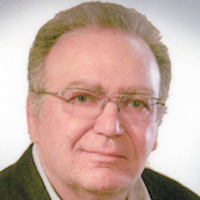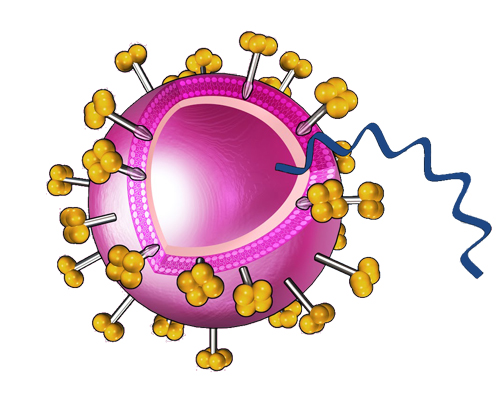 Graziano Pesole has since long carried out research activity in the fields of bioinformatics, comparative genomics and molecular evolution. His current research interests are focused on bioinformatics application for the management and analysis of next generation sequencing data, obtained also at single-cell resolution, including: i) genome assembly and annotation; ii) transcriptome profiling of the protein coding and non-coding portion of the genomes (e.g. miRNAs and lincRNAs), including the characterization of novel splicing isoforms, to investigate gene expression in healthy and disease conditions and identify diagnostic and prognostic molecular biomarkers; iii) Detection and functional assessment of disease-causative mutations; iv) ChIP-Seq analysis for the characterization of epigenetic signatures in healthy and disease conditions; v) RNA editing studies; v) Metagenomics analysis to investigate the microbial composition of clinical and environmental samples and their functional role.
Graziano Pesole has since long carried out research activity in the fields of bioinformatics, comparative genomics and molecular evolution. His current research interests are focused on bioinformatics application for the management and analysis of next generation sequencing data, obtained also at single-cell resolution, including: i) genome assembly and annotation; ii) transcriptome profiling of the protein coding and non-coding portion of the genomes (e.g. miRNAs and lincRNAs), including the characterization of novel splicing isoforms, to investigate gene expression in healthy and disease conditions and identify diagnostic and prognostic molecular biomarkers; iii) Detection and functional assessment of disease-causative mutations; iv) ChIP-Seq analysis for the characterization of epigenetic signatures in healthy and disease conditions; v) RNA editing studies; v) Metagenomics analysis to investigate the microbial composition of clinical and environmental samples and their functional role.
He has developed several specialized databases including UTRdb/UTRsite collecting mRNA untranslated sequences and related regulatory motifs involved in the post-transcriptional regulation of gene expression, ASPicDB and SpliceAID-F, information resources for alternative splicing analysis, ITSoneDB for DNA metabarcoding analysis of eukaryal microbiome, and REDIportal, a comprehensive database of A-to-I RNA editing events in human.
He has also developed widely used analysis software and algorithms which are available as standalone software or through the web including: 1) PatSearch, for the detection or regular expression patterns and structural motifs in nucleotide sequences; 2) CSTminer/GenoMiner, for the blind identification of coding and non coding conserved sequence tags through the pairwise comparison of genome sequences; 3) Weeder, for the discovery of transcription factor binding sites and other regulatory elements, by detecting over-represented nucleotide patterns in nucleotide sequences; 4) RNAprofile, for the discovery of conserved sequence/structural motifs in unaligned RNA sequences; 5) Exalign, for comparative analysis of exon-intron gene structures; 6) ExpEdit and REDITOOLS: for exploring RNA editing from NGS data; 7) WEP and CoVaCS, for the characterization of nucleotide sequence variations through the analysis of whole-exome sequence data; 8) RAP and NGS-Trex, for transcriptome profiling and differential expression analysis from RNA-Seq data; 9) BioMaS, a modular pipeline for Bioinformatic analysis of Metagenomic AmpliconS; 10) MetaShot, an accurate workflow for taxon classification of host-associated microbiome from shotgun metagenomic data; 11) A-Game, for functional metagenomics analyses.
He leads an interdisciplinary research group including molecular biologists, computer scientists and mathematicians.
He coordinated research units in several research projects funded by national (MIUR, CNR, Telethon, AIRC, AISM, ARISLA) and international (EU, NIH) agencies, and has filed several international patents.
He is Section Editor for the journal BMC Bioinformatics and member of the editorial Board of other international journals (Nature Scientific Reports, Nucleic Acids Research – Genomics and Bioinformatics, BMC Genomics, Computational Biology and Chemistry, Briefings in Bioinformatics; Comparative and Functional Genomics), co-author of books on Bioinformatics, Genomics and Molecular Biology published by Italian (Zanichelli, Ambrosiana, Gnocchi) and international (Wiley) editors.
He has been one of the founders and past-president of the Italian Society of Bioinformatics and is currently the head of the Italian node of ELIXIR infrastructure for Bioinformatics and member of the Scientific Committee of Cluster Alisei.
 Graziano Pesole has since long carried out research activity in the fields of bioinformatics, comparative genomics and molecular evolution. His current research interests are focused on bioinformatics application for the management and analysis of next generation sequencing data, obtained also at single-cell resolution, including: i) genome assembly and annotation; ii) transcriptome profiling of the protein coding and non-coding portion of the genomes (e.g. miRNAs and lincRNAs), including the characterization of novel splicing isoforms, to investigate gene expression in healthy and disease conditions and identify diagnostic and prognostic molecular biomarkers; iii) Detection and functional assessment of disease-causative mutations; iv) ChIP-Seq analysis for the characterization of epigenetic signatures in healthy and disease conditions; v) RNA editing studies; v) Metagenomics analysis to investigate the microbial composition of clinical and environmental samples and their functional role.
Graziano Pesole has since long carried out research activity in the fields of bioinformatics, comparative genomics and molecular evolution. His current research interests are focused on bioinformatics application for the management and analysis of next generation sequencing data, obtained also at single-cell resolution, including: i) genome assembly and annotation; ii) transcriptome profiling of the protein coding and non-coding portion of the genomes (e.g. miRNAs and lincRNAs), including the characterization of novel splicing isoforms, to investigate gene expression in healthy and disease conditions and identify diagnostic and prognostic molecular biomarkers; iii) Detection and functional assessment of disease-causative mutations; iv) ChIP-Seq analysis for the characterization of epigenetic signatures in healthy and disease conditions; v) RNA editing studies; v) Metagenomics analysis to investigate the microbial composition of clinical and environmental samples and their functional role.
He has developed several specialized databases including UTRdb/UTRsite collecting mRNA untranslated sequences and related regulatory motifs involved in the post-transcriptional regulation of gene expression, ASPicDB and SpliceAID-F, information resources for alternative splicing analysis, ITSoneDB for DNA metabarcoding analysis of eukaryal microbiome, and REDIportal, a comprehensive database of A-to-I RNA editing events in human.
He has also developed widely used analysis software and algorithms which are available as standalone software or through the web including: 1) PatSearch, for the detection or regular expression patterns and structural motifs in nucleotide sequences; 2) CSTminer/GenoMiner, for the blind identification of coding and non coding conserved sequence tags through the pairwise comparison of genome sequences; 3) Weeder, for the discovery of transcription factor binding sites and other regulatory elements, by detecting over-represented nucleotide patterns in nucleotide sequences; 4) RNAprofile, for the discovery of conserved sequence/structural motifs in unaligned RNA sequences; 5) Exalign, for comparative analysis of exon-intron gene structures; 6) ExpEdit and REDITOOLS: for exploring RNA editing from NGS data; 7) WEP and CoVaCS, for the characterization of nucleotide sequence variations through the analysis of whole-exome sequence data; 8) RAP and NGS-Trex, for transcriptome profiling and differential expression analysis from RNA-Seq data; 9) BioMaS, a modular pipeline for Bioinformatic analysis of Metagenomic AmpliconS; 10) MetaShot, an accurate workflow for taxon classification of host-associated microbiome from shotgun metagenomic data; 11) A-Game, for functional metagenomics analyses.
He leads an interdisciplinary research group including molecular biologists, computer scientists and mathematicians.
He coordinated research units in several research projects funded by national (MIUR, CNR, Telethon, AIRC, AISM, ARISLA) and international (EU, NIH) agencies, and has filed several international patents.
He is Section Editor for the journal BMC Bioinformatics and member of the editorial Board of other international journals (Nature Scientific Reports, Nucleic Acids Research – Genomics and Bioinformatics, BMC Genomics, Computational Biology and Chemistry, Briefings in Bioinformatics; Comparative and Functional Genomics), co-author of books on Bioinformatics, Genomics and Molecular Biology published by Italian (Zanichelli, Ambrosiana, Gnocchi) and international (Wiley) editors.
He has been one of the founders and past-president of the Italian Society of Bioinformatics and is currently the head of the Italian node of ELIXIR infrastructure for Bioinformatics and member of the Scientific Committee of Cluster Alisei.














